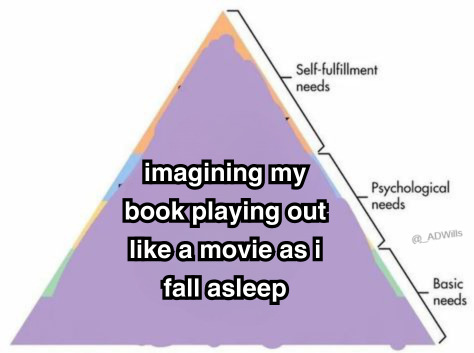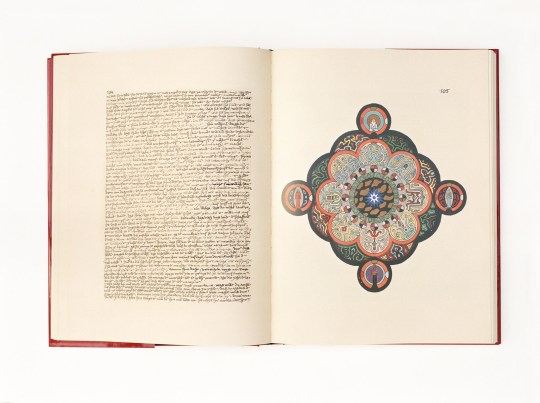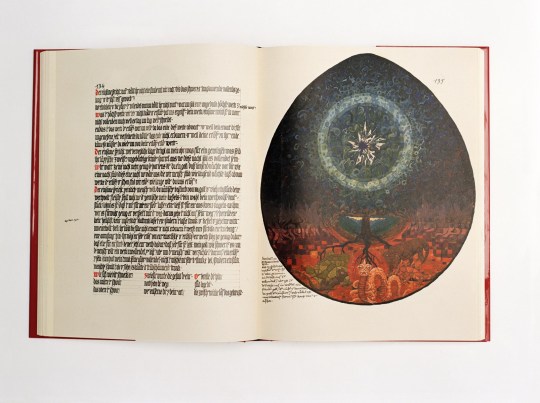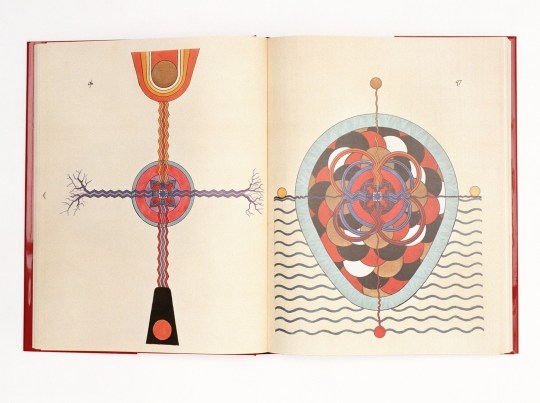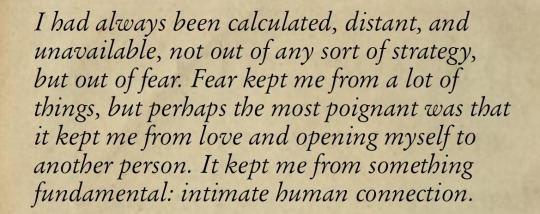Text
In multiverse I tell you everything, no introvert mind, just language of words, but i am here in this universe so I drink coffee and attract sleep; spend day on bed thinking 'bro you are a Scorpio get up" and speaking only in telepathy while"lovers rock" plays 💅
#books & libraries#darkaesthetic#writers#museums#adulting#dark poem#music#depressing memes#hozier memes#art#memes.
0 notes
Text
"hahahahhaah ohhhhhh ohkkk"
(i still didn't understand but social approval is necessity)
#memes#social media#anxiety#books & libraries#darkaesthetic#writers#art#museums#music#adulting#dark poem#depressing memes#hozier memes
2 notes
·
View notes
Text
Love the fact none of us is actually NORMAL. It's all trauma in human form
#mentally tired#introvert memes#depressing memes#books & libraries#darkaesthetic#writers#museums#music#adulting#hozier memes#dark poem#art
9 notes
·
View notes
Text
“You don’t know anyone at the party, so you don’t want to go. You don’t like cottage cheese, so you haven’t eaten it in years. This is your choice, of course, but don’t kid yourself: it’s also the flinch. Your personality is not set in stone. You may think a morning coffee is the most enjoyable thing in the world, but it’s really just a habit. Thirty days without it, and you would be fine. You think you have a soul mate, but in fact you could have had any number of spouses. You would have evolved differently, but been just as happy. You can change what you want about yourself at any time. You see yourself as someone who can’t write or play an instrument, who gives in to temptation or makes bad decisions, but that’s really not you. It’s not ingrained. It’s not your personality. Your personality is something else, something deeper than just preferences, and these details on the surface, you can change anytime you like. If it is useful to do so, you must abandon your identity and start again. Sometimes, it’s the only way.”
— Julien Smith, The Flinch (via wnq-anonymous)
115K notes
·
View notes
Text
Carl Jung you beauty ❤️
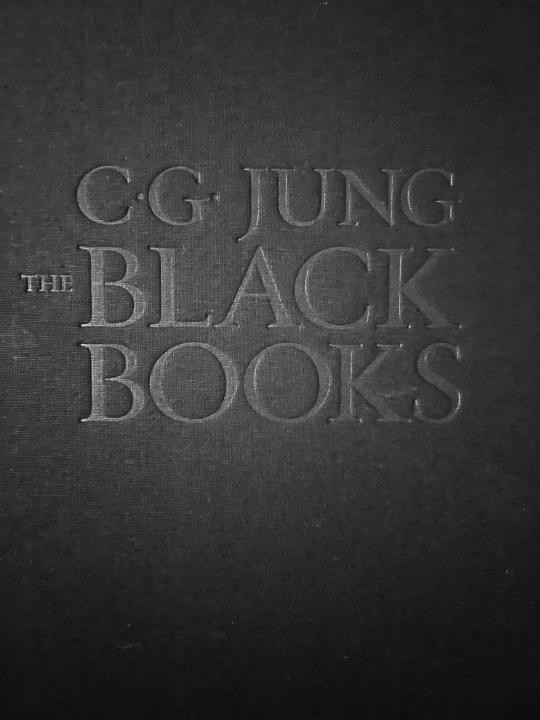
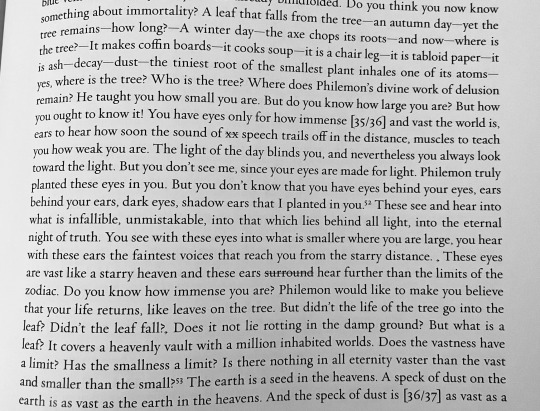
The Black Books are a collection of seven private journals recorded by Carl Gustav Jung principally between 1913 and 1932. They have been referred to as the “Black Books” due to the color of the final five journal covers. The text of The Red Book draws on material from The Black Books.
My soul, my soul, where are you? Do you hear me? I speak, I call you–are you there? I have returned, I am here again. I have shaken the dust of all the lands from my feet, and I have come to you, I am with you. After long years of long wandering, I have come to you again….
Do you still know me? How long the separation lasted! Everything has become so different. And how did I find you? How strange my journey was! What words should I use to tell you on what twisted paths a good star has guided me to you? Give me your hand, my almost forgotten soul. How warm the joy at seeing you again, you long disavowed soul. Life has led me back to you. My soul, my journey should continue with you. I will wander with you and ascend to my solitude.
102 notes
·
View notes
Text
The Red Book, Liber Primus: Part One
This is going to be a long series of posts in which I interpret Carl Jung's Red Book! Jung has been a cornerstone of my mystical practice for basically as long as I've been practicing, and a major inspiration for my creative work, so imagine my surprise when I learned that Jung had his own grimoire of mystical experiences! This is maybe the most important book I've ever read.
Introduction
I owe a lot to Carl Jung. I read one page about him in a book about symbols that I received when I was about twelve, and something just clicked. In particular, the idea of the Shadow Complex really stuck with me, and has absolutely defined the last decade of my life in terms of my personal spirituality, my approach to interpreting media, and my creative writing. It’s kind of hard to overstate the impact that Jung has had on me, but despite that, I haven’t actually read that much Jung. You all know how much I care about primary sources, so I was uncomfortable with the fact that I was using Jung’s ideas as the basis of my own work without being intimately familiar with his.
I’ve made some missteps. I originally really loved the idea of interpreting gods as archetypes, and claiming that all of humanity worshipped the same gods under different names. I saw that as a beautiful uniting feature of humankind. But the concept did not hold up under scrutiny, for a long list of reasons; the short version is that I was ignoring nuances that distinguished gods from each other, dismissing some of their defining qualities as cultural quirks, as if entire human cultures were “hats” that gods put on and not the thing that makes them what they are. I didn’t start having real relationships with gods until after I started viewing them as individuals, rather than archetypes. And then there’s Joseph Campbell, and his whole “Hero’s Journey” idea, which seemed extremely profound until I actually read The Hero with a Thousand Faces and realized how flawed the Hero’s Journey framework really is. (Spencer McDaniel has a great article about that over on her site, so I recommend you check that out.) So, that was all another strike against Jungian ideas. The third strike is that people like Jordan Peterson use his ideas a lot. That in particular has made me afraid that I’ve been misinterpreting Jung this whole time.
There’s also the fact that Jung’s ideas are difficult to understand and apply, and frequently misunderstood. Clinical psychology has mostly disregarded Jung’s ideas of the collective unconscious and archetypes as more mystical than empirical, despite Jung’s efforts to prove his ideas empirically. Fans of Jung will sometimes downplay his mystical leanings to try to lend more scientific credibility to his ideas. But to me, Jung’s mysticism is a feature, not a bug. Turns out, Jung was a mystic. Jung had mystical visions and prophetic dreams since he was a young child, and his entire brand of psychoanalysis was developed specifically to explain said mystical experiences (which honestly explains a lot). Not only was Jung a mystic, he was basically the William Blake of his day! He chronicled his mystical experiences in what is basically a personal grimoire, written in the style of an illuminated medieval manuscript, with stunning illustrations.
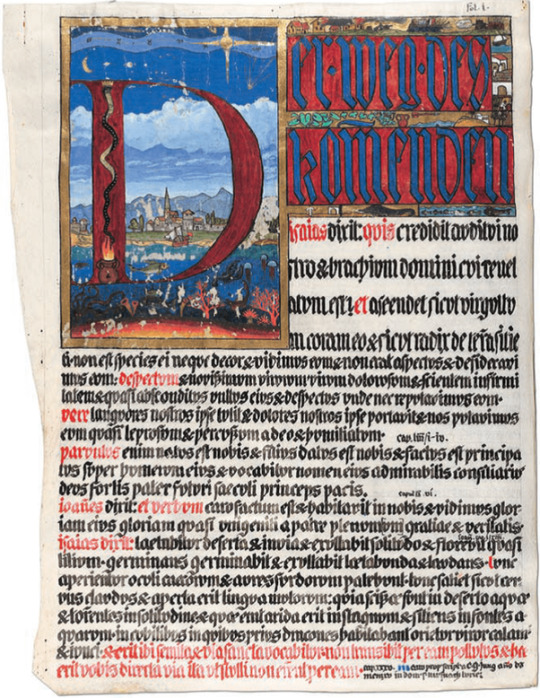
It’s called The Red Book, or Liber Novus, and it was published in 2009 (translated by Sonu Shamdasani). I got the really expensive version that’s about two feet tall and contains a facsimile of the actual illuminated manuscript. To call it an eye-opener would be an understatement. Reading it is infinitely more valuable to my spirituality and my writing than reading any of Jung’s psychological essays. The Red Book is the real source of most of Jung’s ideas and theories, and the purely mystical nature of them explains why the concepts themselves resonate much more for me than the psychoanalytic application of them does. Reading it is immensely validating, because it proves that I was right all along! Not only were my interpretations of Jung’s ideas spot-on, but my UPG aligns with his — though some of that alignment is undoubtedly a result of his influence on me, I’ve also come to many of the same conclusions entirely on my own.
I hope that the field of modern psychology will eventually do mysticism its due diligence using modern methodology, but until then, Jung’s attempt to ground all of this weirdness in psychology is the best we’ve got. I’m no psychoanalyst, so I’ll interpret Jung as a fellow mystic, because that is what I am most familiar with. I can compare his own experiences against my own, and hopefully get something valuable from my interpretation of them.
Disclaimer: These are mostly my notes and impressions; I’m not responding line-by-line (because that would take forever), I’m responding to what stood out to me. This is my interpretation of The Red Book based on my own mystical experiences and mystical knowledge, not based on Jung’s other writings. I’m using Jung’s name as shorthand for “the person writing this” or “the dreamer” — I don’t mean to suggest that what Jung expresses here is indicative of his personal spiritual beliefs. I know he had a complicated relationship with mysticism, science, and religion, so I won’t even touch that here. I’m going to be looking at this from a strictly mystical angle, and everything that follows is subjective.
The Way of What Is to Come
Jung began by introducing two spirits. One is “the spirit of this time,” a literal translation of zeitgeist (Jung’s manuscript is in German), which represents the conscious mind and conventional thought. It’s a reference to Goethe’s Faust: “What you the Spirit of the Ages call / Is nothing but the spirit of you all, / Wherein the Ages are reflected.” It’s called “the spirit of this time” because the times that we live in influence what and how we think, and form the foundation of our conscious faculties. I might define the Zeitgeist as the set of assumptions we make that defines our base-level interpretation of the world around us. So, when I complain about “latent Christianity,” I’m calling attention to the Zeitgeist. To put it in my own mystical terms, the Zeitgeist is the part of you that thinks like a human, instead of thinking like a god.
The opposite of the Zeitgeist is what Jung calls “the spirit of the depths,” which represents the unconscious mind. The Spirit of the Depths is both a personification of and Jung’s guide to the unconscious. It is something like a collective Shadow combined with a chthonic god, that encompasses all of the hidden and buried parts of humanity (or at least of Jung) that can be accessed through dreams and mystical visions. It operates independently from the Zeitgeist, and therefore can introduce Jung to secret information and concepts that fall outside of the Zeitgeist’s purview. A lot of what it tells Jung is harsh, but he understands that it’s necessary to listen to the Spirit of the Depths and internalize what it tells him.
Only a page in, and we’ve already got a mention of the Shadow concept. Since everything has a Shadow, God also has a Shadow. Jung defines God as “supreme meaning,” so God’s Shadow is lack of meaning — nonsense, void. The Spirit of the Depths tells Jung to notice the small things in life, which is pretty banal spiritual wisdom for most of us nowadays, but it’s very hard for Jung to accept. He writes, “It completely burnt up my innards since it was inglorious and unheroic. It was even ridiculous and revolting.” Everything has their own thing that they’re working through — I have to work through issues related to power and sexuality, and what Jung has to work through is issues relating to meaning vs. meaninglessness, greatness vs. mediocrity, sensibility/respectability vs. foolishness. The Zeitgeist of early-twentieth-century Germany insists that only great deeds, great men, and great ideas are the ones that matter. Jung was taught to think that things must be “glorious” and “heroic,” larger than life, for them to matter. The Zeitgeist encourages Jung to dismiss the little things as part of God’s shadow. The Spirit of the Depths informs him that the small things are still part of God and not God’s Shadow because they are not nonsense. The mundane is still divine, because it is not nonsense.
The Spirit of the Depths tells Jung, “all the last mysteries of becoming and passing away lie in you.” It’s a big deal to be one of the people of this time who can experience the Mystery the way the ancients did, or near enough. Actually, wait — Jung isn’t quite a person of this time. There’s a solid century between Jung and me, which is enough time for the Zeitgeist to have changed considerably, but not that much time. He’s essentially my immediate ancestor, the most recent entry in my mystical tradition. It is absolutely wild to be reading the Mystery filtered through a specific, named person who lived only a century ago, as opposed to ancient mystics of Antiquity who didn’t write everything down so I have to blindly guess at what they might have experienced or how they might have interpreted it. But there’s enough time in there that I keep wondering, am I in the time that is to come? Is Jung receiving this information so that I can be primed to receive it?
Jung says, “It is true, it is true, what I speak is the greatness and intoxication and ugliness of madness.” Yeeeeah! We’ll get back to divine madness, but I love that it’s being brought up this early. However, it’s a lot harder for Jung than it is for me to admit that these words or visions might come from a place of madness, because Jung is a person who really likes for things to make sense. On that note:
I must also speak the ridiculous. You coming men! You will recognize the supreme meaning [God] by the fact that he is laughter and worship, a bloody laughter and a bloody worship. A sacrificial blood binds the poles. Those who know this laugh and worship in the same breath.
Hmm, this doesn’t sound like any god I know at all… I love that phrase “a bloody laughter and a bloody worship.” That’s Dionysian worship in a nutshell, right there.
My speech is imperfect. Not because I want to shine with words, but out of the impossibility of finding those words. I speak in images. With nothing else can I express the words from the depths.
That checks. Mystical experiences often come as floods of insights and images, but few words, I think because words are literally processed differently by the brain (don’t quote me on that). Putting it into words literally requires a translation, and it can be very difficult to find the right words to do it justice or record every aspect of it. I’m also reading an English translation of Jung’s German, so that’s another degree of separation, but two degrees of separation is relatively little.
Jung has a vision of a sea of blood blanketing Europe, which is obviously a premonition of WWI. He also dreams that he returns to his homeland (Switzerland) from a “remote English land,” to find it covered in frost in summer; he makes wine from iced grapes, which he shares. The first part of this is a premonition — he was in Scotland when WWI broke out, and hurried home. As for the second part, “…I found my barren tree whose leaves the frost had transformed into a remedy. And I plucked the ripe fruit and gave it to you and I do not know what I poured out for you, what bitter-sweet intoxicating drink, which left on your tongues an aftertaste of blood.” Not sure exactly how to interpret this, but it’s a striking image, especially to a Dionysian like me.
Reassuringly, Jung insists that he is relaying his own experiences, not mine or anyone else’s:
It is no teaching and no instruction that I give you. On what basis should I presume to teach you? I give you news of the way of this man, but not of your own way. My path is not your path, therefore I cannot teach you. The way is within us, but not in Gods, nor in teachings, nor in laws, Within us is the way, the truth, and the life.
Woe betide those who live by way of examples! Life is not with them. If you live according to an example, you thus live the life of that example, but who should live your own life if not yourself? So live yourselves.
The signposts have fallen, unblazed trails lie before us. Do not be greedy to gobble up the fruits of foreign fields. Do you not know that you yourselves are the fertile acre which bears everything that avails you?
Yet who today knows this? Who knows the way to the eternally fruitful climes of the soul? You seek the way through mere appearances, you study books and give ear to all kinds of opinion. What good is all that?
There is only one way and that is your way.
You seek the path? I warn you away from my own. It can also be the wrong way for you.
May each go his own way.
Thank the gods for this! It’s too common for mystics to assume that their own personal revelations apply to everyone else, because mystical experiences really do make you feel like you have all the answers to life, the universe, and everything. Hearing straight from Jung himself that he is only speaking for himself, and that what he says here need not apply to me or anyone else, ironically makes his words more validating. Also, my biggest criticism of Jungian psychoanalysis is that it seems to apply the same symbols universally (the gender essentialism in the anima/animus concept comes to mind), so I assumed that Jung was extrapolating from his own mystical experiences. It seems as though he actually had the wisdom to admit that these symbols apply only to himself.
Refinding the Soul
Jung feels distanced from his soul, because surprise surprise, 20th century patriarchy is spiritually bankrupt. At the time he had the bloody-flood vision, Jung was forty years old and had accomplished everything that patriarchy says you should want in life — he had honor, power, wealth, knowledge, and happiness. He succeeded. He won the game of life. All he was left with was abject horror and the question of what to do with himself, a midlife crisis. (From a quotation in the footnotes, Jung defines the midlife crisis at the moment at which the Shadow first asserts itself: “A point exists at about the thirty-fifth year when things begin to change, it is the first moment of the shadow side of life, of going down to death.” Buddy, I’ve gotten way past that and I’m not even twenty-five!)
Jung thus came to the realization that he had dedicated his life to the wrong things:
I had to accept that what I had previously called my soul was not at all my soul, but a dead system. Hence I had to speak to my soul as to something far off, and unknown, which did not exist through me, but through whom I existed.
“A dead system” is a great way of putting it. It reminds me of the Fight-Club-esque dissatisfaction of having ticked all the boxes within the system and done everything you’re supposed to, and receiving absolutely no real fulfillment from it. (I bet Fight Club also owes a lot to this.) It also reminds me of my new favorite Terry Pratchett quote, from Small Gods, “People start off believing in the god and end up believing in the structure.” A structure by itself is completely hollow — what’s scaffolding for if it doesn’t support anything? I also like that second line. You exist through your soul, by means of your soul, and not the other way around… That suggests that it’s more real than you are.
Jung explains to the reader that if you seek external things – money, success, validation from other people — then you will not find your soul, and will enter midlife crisis. The soul is only found internally. So go inward, and do the work. Pretty self-explanatory at this point, but must have been earth-shattering back then because he spends a lot of time justifying it. It’s the Spirit of the Depths who tells Jung to look internally and reconnect with his soul:
Therefore the spirit of the depths forced me to speak to my soul, to call upon her as a living and self-existing being. I had to become aware that I had lost my soul.
I think it’s interesting that Jung uses feminine pronouns for his soul. That makes sense, since I use masculine pronouns for mine. I’m not sure how this relates to the anima/animus concept, whether it’s the same thing or a slightly different thing. It’s probably the same idea, because “anima” is the Latin word for “soul.” I checked, and Jung uses “seele” and not “anima,” possibly because he hadn’t developed the concept yet.
I interpret Astor as my Shadow and associate him with my repressed personality traits, but Jung would say that he was my animus, because I’m a woman and Astor is the man that exists in my mind. Jung conceived of the Shadow and anima/animus as separate figures — the repressed aspects of the personality and repressed femininity/masculinity, respectively — that need to be integrated separately. For me, they’re the same figure. The anima/animus is one of the concepts that I think hasn’t aged well, not because the concept is inherently bad (internal repressed qualities that one associates with the opposite sex) but because the way it’s presented and describes falls along strictly gender-essentialist lines. This is especially because the anima/animus is less personal and less “universal” than the Shadow, which inevitably means projecting Western gender norms (such as “women are more emotional and men are more logical,” which Jung expressed as Eros and Logos) onto everyone in the world and calling it an inherent psychological feature of humankind.
I think it’s is one of those concepts that was progressive for its time but regressive now with our more nuanced interpretation of gender. For example, the anima appears in men’s minds as a sex symbol, but the animus apparently does not appear as a similar sex symbol in women’s minds: In Man and His Symbols, Marie Louise von Franz says “…the animus does not so often appear in the form of an erotic fantasy or mood [as the anima does for men]; it is more apt to take the form of a hidden “sacred” conviction.” Yeah, that’s bullshit. I’m willing to bet anything that this interpretation is the result of women being sexual objects from men’s perspectives (as the “anima”) but denied any access to or expression of sexuality within their own minds. Women aren’t culturally allowed to desire men, so the animus is the unsexed voice of her father giving her very judgemental advice and rigid solutions, instead of a seductive incubus. That doesn’t check. Astor is basically a sexual fantasy with a mind of his own, and if Lestat, Rhysand, Edward Cullen, and Azhrarn exist, I’m clearly not the only woman who has a relationship with this specific archetypal lover.
Actually, I also have the “nightmare woman,” a separate entity from Astor that is a textbook example of what Jung would call a “negative anima”… if I were a man. Maybe having an opposite-sex Shadow and same-sex anima/animus is another sign of my gender identity being a bit screwy. Or maybe the reason why Jung’s soul is female is because his gender identity isn’t that straightforward, either. Either way, I think the anima/animus concept needs to be redefined to make it less cishet. It’s not universally applicable to say that your Shadow must be the same sex as you or that you have repressed femininity/masculinity. That was probably true back in the early twentieth century when anyone would repress any inclination towards cross-gender expression for fear of social disembowelment, but now? “Hey, turns out men/women have feminine/masculine traits, too” is not an archetype.
I digress. Back to The Red Book.
I came upon an interesting revelation while reading this section — if Jung’s soul is feminine and he has to “refind” her, then that’s why the hero of every fairy tale gets his princess at the end of the story. The princess is his soul, which he is given a right to by having completed the self-actualization process through the events of the story. The “half a kingdom” part of the Standard Hero Reward could represent control over part of the unconscious mind. I got a prince and half a kingdom from this process (maybe it’ll be a whole kingdom if I ever finish a version of the map that I’m happy with). It’ll quickly become apparent that this whole book chronicles Jung’s own Hero’s Journey. That means… in a manner of speaking… the the Hero’s Journey isn’t based on Jung’s ideas – Jung’s ideas are based on the Hero’s Journey. Because the Hero’s Journey is the ancient mystical process of self-actualization.
[Edit: I was getting ahead of myself here. Pretty much all of this will be addressed later when we get to Liber Secundus.
If we possess the image of a thing, we possess half the thing. The image of the world is half the world. He who possesses the world but not its image possesses only half the world, since his soul his poor and has nothing. The wealth of the soul exists in images. […] My friends, it is wise to nourish the soul, otherwise you will breed dragons and devils in your heart.
I interpret this as meaning that in order to “possess” the world in full, to have our princess and half-a-kingdom, you have to have both the internal and external aspects of it. To put it in alchemical terms, unite the fixed and volatile. (Unification of opposites is going to be a big theme throughout this book.) If you don’t “nourish the soul,” then it festers like a wound and you start projecting unaddressed Shadow aspects on the external world. (We’ll get back to that, too.) Without your Shadow or your unconscious mind, you’re half gone.
18 notes
·
View notes
Text
The introvert urge to shut every possible conversation down with “um I can’t possibly hear after two words” and run as fast as I can.
#introvert#books & libraries#art#darkaesthetic#museums#writers#dark poem#music#depressing memes#adulting#hozier memes#introvert memes
3 notes
·
View notes
Text
Once you start depersonalizing from wordly things there's no coming back.
#hozier memes#depressing memes#books & libraries#darkaesthetic#museums#writers#history#music#art#hurt/comfort
0 notes
Text
I still envy the fact that no one mentioned Adulting is not about JUST CLUBBING and Making way through out. IT'S a crysession 24×7 and working with bleeding eyes and a smile, managing utensils, laundry,bills,all at once and deciding between "crying after work or crying during work or to wait and cry before work" . It's nothing fancy but Adulting.
#adulting#books & libraries#darkaesthetic#art#writers#teen quotes#mentally tired#darkmemes#sarcastic
0 notes
Text
No i don't cry!! IT Is WhaT IT is!!!
(crying in corner painfully,literally sobbing the shit out after drinking two and half cup of alcohol, rants about every epic misery shit going on, screams the lungs out of every sentence, while the whole friend group is regretting the decision at first stake)
#hurtquotes#alcohol#mentally tired#mental illness#art#darkaesthetic#books & libraries#writers#music#adulting
0 notes
Text
Only if we could let silence talk. There is already so much of noise in my bones,blood and tears. The silence it demands the present. The noise has it all past. Be PRESENT.
0 notes
Text
Here is the thing about being wounded empath. You name the deep lines that Kafka ever wrote to his dad and I name you everytime I need to name One sided Love
0 notes
Text
And that I lived a free life not ruined by the touch of opinions and morals but sprinkled by every colour of adventure, love and Drama.
2 notes
·
View notes
Text
The scented night candles, a long warm bath, daisies and hot coffee were set but the chaos wasn't settled in heart.
1 note
·
View note
